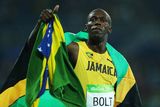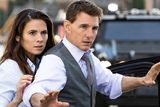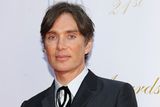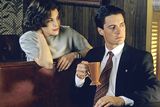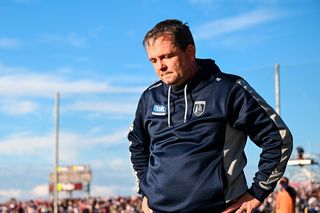Dennis Hopper: Mad, bad and dangerous to know
Dennis Hopper was a legendary Hollywood hell-raiser. But as a new exhibition reveals his talent as a photographer, Julia Molony examines the man behind the madness.
In the final years of Dennis Hopper's life, the journalists and interviewers who wrote about him in his twilight years were keen to neatly round off the gnarly, volatile narrative of his life with a conversion approaching redemption.
They spoke of his sobriety - finally achieved in middle age after a lifetime of devotion to booze and narcotics. They mentioned the stability he seemed to have found with wife number 5, the actress Victoria Duffy and how much he appeared to dote on their small daughter, Galen.
Hopper was arguably the most infamous wild man of his generation, which is saying something when you consider those he was keeping company with. According to popular legend, Warren Beatty was sex mad, Jack Nicholson fun mad, but Hopper - well Hopper was bad mad.
Even in his seventies, he knew how to stage a scene. Some time after he was diagnosed with aggressive prostate cancer, his fifth marriage of 14-years-standing dramatically combusted. He had a restraining order issued against his much younger wife in court, despite being too ill and frail at the time to attend the hearing. His assistant accused her of trying to kill him and Duffy retaliated by claiming he hadn't renounced those lifelong passions of his - guns and drugs.
Ultimately, it's not surprising that in the end, he resisted following the script that others would lay out for him. That he reached his seventies at all surprised anybody who had read him talking about his addictions, let alone those who were close enough to witness it. "I was doing half a gallon of rum with a fifth of rum on the side, 28 beers and three grams of coke a day - and that wasn't getting high, that was just to keep going, man," he once said. It's true that Hopper did mellow somewhat with age, but he remained, in some essential way, unreconstructed to the last. This was a man who didn't wrestle with his demons so much as dance with them.
You only had to take one look at Hopper to know he was trouble. The kinetic, destructive energy that propelled him in his youth, through dissolution to psychosis, was palpable in his coiled spring bearing, and the granite gleam in his eyes. These were the qualities which were used to good effect by the movie-making machine, which in his later years put him to work playing a long list of deranged and sadistic sociopaths.
But for Hopper who, at least in his early days, considered himself to be a great artist, it must have been quite a come-down to end his career playing scheming villains in popcorn flicks such as 1994's Speed. When the iconic Easy Rider was released 1969 he believed it was his calling card to become one of the most important film-makers of his age. But though he was never short of ego, he lacked follow through - hamstrung in many ways by his personality issues - the temper, and self-destructive tendencies. His talent for self-sabotage was equal to his grandiosity.
Hopper was 18 when he signed a contract to Warner brothers. A country boy from Kansas, he had developed a taste for beer while harvesting wheat on his grandfather's farm at age 12. Though his father was in the CIA and a Methodist lay minister, in all respects apart from his father's employment, his background was regular, unremarkable. He admitted to early sexual fantasies about his mother, but his feelings about his background were conflicted, and in general he seemed to feel contempt for what he perceived as its satisfied mediocrity.
"I didn't love either one of them, very honestly," he once said of his parents in an interview. "They weren't bad - like, this isn't a monster story - but I just felt out of place. They thought I should be a doctor or a lawyer or an engineer, and that being an actor was a life of becoming a bum - and this was not an acceptable occupation. So we start there, and you can get the rest." Even as a child, Hopper had always been compulsively creative. He studied painting in his spare time and, aged 13, joined a theatre and spent his spare time performing Shakespeare.
At just 18, he signed a contract with Warner Brothers and was promptly cast alongside James Dean in Rebel Without A Cause. He was quickly initiated into the Hollywood lifestyle, propositioned by his 16-year-old co-star Natalie Wood. His relationship with Dean, however was close to hero worship - he related immediately to Dean's romantic outsider persona, and his non-conformism.
The success of Rebel Without A Cause placed Hopper squarely at the centre of the Hollywood studio system, but no sooner than he had got his foot in the door than he'd shot himself in it. He was dropped by Warner Brothers and blacklisted in the industry following a bitter falling out with the director Henry Hathaway on the set of From Hell to Texas in which he'd been cast alongside John Wayne.
It was this enforced hiatus on his Hollywood career that spurred Hopper into his secondary passion, photography. He went to New York to study acting under the famous teacher, Lee Strasbourg. In New York, the centre of rapid social change in America, he saw inspiration all around him and began documenting it with his camera. Before long he was commissioned to shoot fashion for Vogue and Harper's Bazaar.
In New York, he immersed himself in the arts scene, hanging out with Warhol and taking pictures of some of the biggest cultural and political figures of the era. He became something of a collector of Warhol's work, (he was one the first to purchase one of Warhol's iconic Heinz soup cans, for the princely sum of $75) and a lifelong devotee to pop art.
In 2011, a Warhol portrait of the communist leader Mao Zedong that had been owned by Hopper went on sale. The fact that it achieved a price almost ten times its estimate was attributed to the fact that it featured two bullet holes in it, after Hopper in a delusional moment, "mistook the portrait on his wall for Mao himself and shot at it," according to Christies, the auctioneer. When Hopper showed the damaged painting to Warhol, they agreed to treat it as a collaboration.
His grand re-entry to Hollywood came on the back of the era-defining movie Easy Rider. A collaboration with Peter Fonda, the film ushered in a new creative era of movies that reflected the social change of the time. "I simply saw what was happening all around me . . . At every drive-in in the country, couples were smoking grass and dropping acid - while still watching Doris Day and Rock Hudson. It had to change," Hopper later said.
Featuring two long-haired bikers who pull off a big cocaine deal, it cemented an entire movie-making mythology that we now take for granted - based on the notion of rebels or outlaw heroes. It was anti-establishment counter-culture enshrined in narrative. It was also the first mainstream movie to feature hard drugs. The film was co-written and directed by Hopper, and according to most critics remains his most shining achievement as an actor and an artist. Hopper documented the whole film-making process in photographs, but the serene distance of the lens belies the turbulence of the process.
The film was a hit at the box office. Film writer Peter Biskind, in his seminal book Easy Riders, Raging Bulls wrote that 'Hopper and Fonda were renegades. To them, it was beating Hollywood at its own game - that you could get high, express yourself and make money all at the same time.' But their achievement came at a great cost. Their friendship,which had been very close, never recovered from all of the rows, creative differences and ego clashes that were part of the process. And by the time the film hit theatres, Hopper's first marriage, to Brook Hayward had broken down.
Dennis and Brooke had married in 1961, when he was just 25. She was part of the old-Hollywood establishment when they met, the daughter of agent-producer Leyland Hayward and actress Margaret Sullavan. Hopper, however, was unable and unwilling to conform.
"New York and Hollywood are hard for me, where you have to go and sit in a producer's lap at those parties . . . I try to be polite and courteous, and then sure enough, I get pissed off and blow it. Let's face it. I can't stay on my best behaviour for long. I don't have the social amenties to make it or enjoy it," he once said.
His real problem, he admitted late in life, was not anger but shyness. "When I get up to make a speech, I am so nervous I really have problems. I have to be Dennis Hopper. Who is Dennis Hopper? I mean, Dennis Hopper doesn't have an identity."
Still, back then he was prone not just to impatience but to violent rages, often spurred by his heavy drinking. "We didn't have a lot of alcohol in the house, because if we did, Dennis would finish it off in minutes. He'd even drink the cooking sherry," Brooke once said.
Initially things were manageable between them, even happy. "He was an incredibly colourful character in those days," she once said. "A sweetheart." But Brooke believed that something profound had changed in him after he returned from a prolonged stint spent high on acid at a San Francisco love-in in 1966. He arrived home with "a three-day growth of beard, he was filthy, his hair was crazy - he'd started growing a ponytail - he had one of those horrible mandalas around his neck and his eyes were blood red. Dennis was altered forever."
Not long later, his explosive temper turned violent, and he ended up breaking her nose during an argument. After another row not long after, she recalled that Hopper jumped on the bonnet of the car as she tried to drive away from him and kicked the wind-shield in, "in front of ten people," Hayward said. "I was scared, and I had to drive home with no wind shield."
As Easy Rider grinded into gear, edging slowly towards the production stage, the pressures began to exert their toll on the already emotionally volatile Hopper.
"He was now drinking a great deal, and doing a lot of different drugs, which did not help his state of mind and he was under the gun. He was violent, and dangerous. Exceedingly dangerous."
When he was arrested for possession of marijuana, Hayward seized the opportunity, packed up with their daughter Marin and took out an restraining order against him.
"When we did get divorced, I probably could have gone for half of his cut from Easy Rider," she said later. "But I refused to take a nickel from him, because I didn't want him coming after me with a shotgun and shooting me."
His friendship with Fonda didn't fare much better. A battle over profits between them ended up in court. Fonda won the dispute and Hopper never quite forgave him.
"Dennis was just a paranoid person," Fonda said recently. "He got to the point where he thought I was cheating him. Which just wasn't in my nature. But Dennis's drug-fuelled paranoia struck really deep. And when it came to court, there was the contract I had signed, which said he got one-third of my company's gross profits. More than that, when I'd been forced to do an audit on Columbia Pictures - a very expensive thing to do - I never charged him. When the judge saw that, he threw it out of court as a summary judgment, because he saw I had paid Dennis more than I had to."
Still, with Easy Rider a commercial hit, Hopper's reputation in Hollywood looked rosy. TIME magazine put him on their cover as a bright new visionary. Before Easy Rider, he once said, "I was looked on as a maniac and an idiot and a fool and a drunkard. I made Easy Rider, man, and the whole world opens up to me.'
Ultimately, his ego got the better of him. His next project, The Last Movie, was an ambitious venture to be filmed in Peru, the beating heart of of the South American drug trade. In the weeks of filming it quickly turned from a credible film into a bloated, overblown vanity project involving a director and creative team veering steadily off the rails. On release, The Last Movie was widely panned by the critics.
While filming, Hopper struck up a romance with Michelle Phillips, singer from the Mamas and Papas, who had a small part in the movie. On a whim, they got married but broke up just a week later. According to rumour, she cited as his "unnatural sexual demands," as cause for the split. Friends described the marriage as "the six day war."
Over the next decade he slipped further and further into addiction and was working little, despite small but memorable roles in some significant films, such as Apocalypse Now, and later, a turn as a violent, psycho-sexual maniac in David Lynch's eerie and sinister Blue Velvet. The latter went some way to restoring his troubled reputation in Hollywood, but he remained better known for trouble and misbehaviour; drugs and orgies with up to 50 people, than for his work.
At one point, he shared an office with Phil Spector, another renegade who like Hopper, loved guns. "Phil's birthday is at Christmas and we spent a lot of Christmases together, just him and I. And two candles: one for John Lennon and one for Elvis… And a few girls… And guns," he recalled shortly before he died.
"I don't know if he shot that girl or not," he said. "But I know that if he did, it was an accident. When you play with guns, accidents happen."
By the 1980's, he disappeared to Mexico, having convinced himself that he was being pursued by the mob. There, he had a full breakdown, later admitting that he walked off into the jungle, "naked, in the middle of the night."
Returning home, he eventually began the slow and painful conversion to sobriety, and revived his career as an actor, having let his big chance as a director slip through his fingers.
Three more marriages and three children were to follow, but he was never, even in later life, capable of keeping the peace with women.
"I used women all my life, just as I used alcohol and drugs," he once said. He declared he'd like to die a single man, but cancer got the better of him before his last divorce went through. It's believed that Victoria Duffy and their daughter Galen jointly inherited his $60 million fortune. Late in life he did the unthinkable, after a youth devoted to outsider politics he converted to Republicanism and discovered golf, but contentment and equilibrium always eluded him.
"I'm not really a person that looks back on my life, because it wasn't that pleasant to me. I have a lot of great memories, but I don't go there, because there are really dark memories too," He said. "The only regret I could have is that I wasn't directing movies. And that I wasn't really getting good parts."
'Dennis Hopper: The Lost Album' is at the Royal Academy, London until October 19th
Join the Irish Independent WhatsApp channel
Stay up to date with all the latest news
